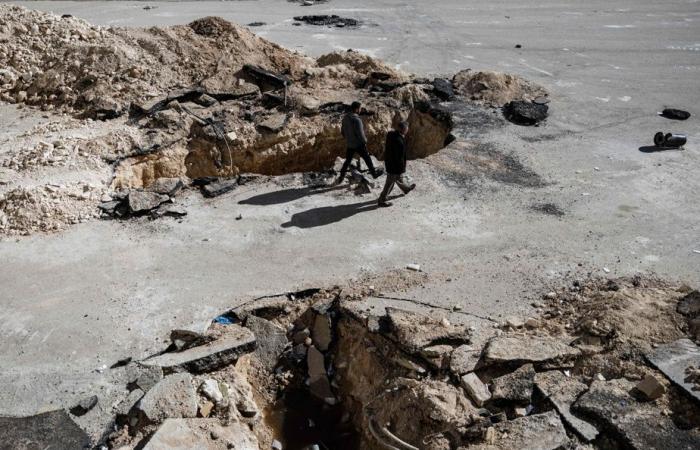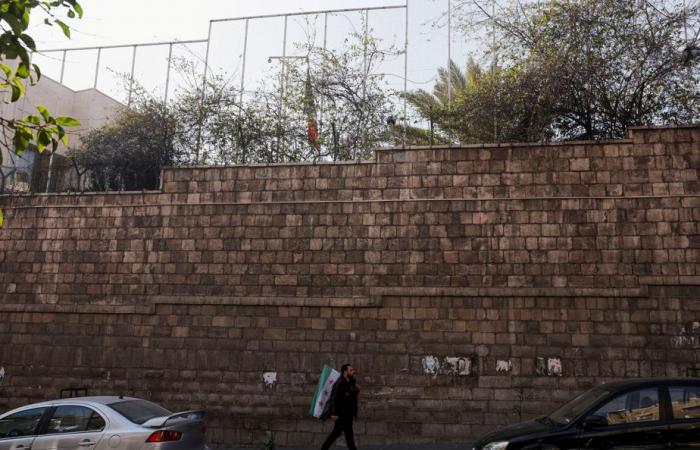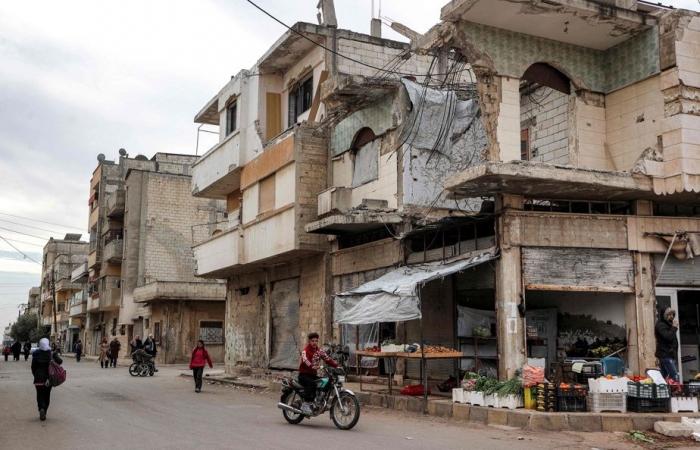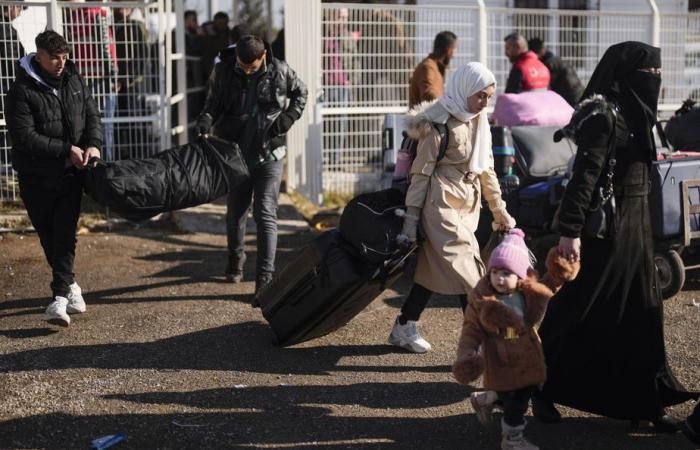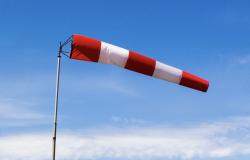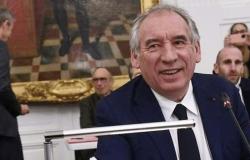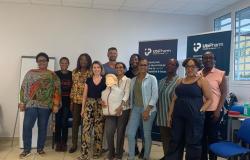(Damascus) Several foreign missions met on Tuesday in Damascus with the new Syrian authorities, dominated by radical Islamists, who are trying to reassure about their ability to pacify Syria, fragmented and devastated by 13 years of civil war.
Posted at 6:38 a.m.
Updated at 9:10 a.m.
Etienne TORBEY, with Marisol RIFAI in Beirut
Agence France-Presse
France, whose flag now flies over the embassy closed in 2012, Germany, the United Kingdom and the UN have sent emissaries to establish contacts with the transitional authorities, whose first steps in power are observed with caution.
Faced with the challenge of unifying the country and the expectations of foreign capitals, Syria’s new strongman, Abu Mohammad al-Jolani, pledged to dissolve and integrate into the army the factions that contributed to the fall of former President Bashar al-Assad, overthrown on December 8 at the end of a lightning offensive led by rebels from northern Syria.
The fighting groups “will be dissolved and their fighters prepared to join the ranks of the Ministry of Defense, and all will be subject to the law,” said Tuesday the leader of the radical Sunni group Hayat Tahrir al-Sham (HTS), which now calls himself by his real name, Ahmad al-Chareh, and presents himself in civilian costume to foreign delegations.
The French flag was raised on Tuesday at the French embassy in Damascus, upon the arrival of a diplomatic mission sent by Paris for the first time in 12 years.
“France is preparing to be alongside the Syrians” during the transition period, declared French envoy Jean-François Guillaume.
PHOTO AMR ABDALLAH DALSH, REUTERS
The French flag was raised over the French embassy in Damascus, which has been closed for 12 years.
The European Union has said it is “ready” to reopen its embassy and the United States has also established contacts with HTS.
The fall of Bashar al-Assad was greeted with scenes of jubilation, almost 14 years after the start of the civil war triggered in 2011 by the repression of pro-democracy demonstrations, which left half a million dead and sparked flight. abroad of six million people.
But unifying the country, where there are many factions and religious or ethnic minorities, remains a challenge for HTS. This former Syrian branch of Al-Qaeda claims to have broken with jihadism, but remains classified as a terrorist organization by several Western capitals, including Washington.
Although wary, Westerners are seeking to establish ties with the new power, aware of the risk of fragmentation of the country and the resurgence of the Islamic State jihadist group, which has never been completely eradicated from Syria.
The EU must “intensify” its relationship with HTS, the President of the European Commission, Ursula von der Leyen, said in Türkiye on Tuesday. “We cannot allow” a “resurgence” of ISIS in Syria, she said.
France also stressed that its emissaries in Damascus had asked their interlocutors to “continue the fight against Daesh and other terrorist groups”.
“Cautious hope”
In the old souks of Damascus, the vast majority of businesses have reopened.
On Tuesday, traders painted the facade of their stores white, erasing the colors of the old Syrian flag with two stars.
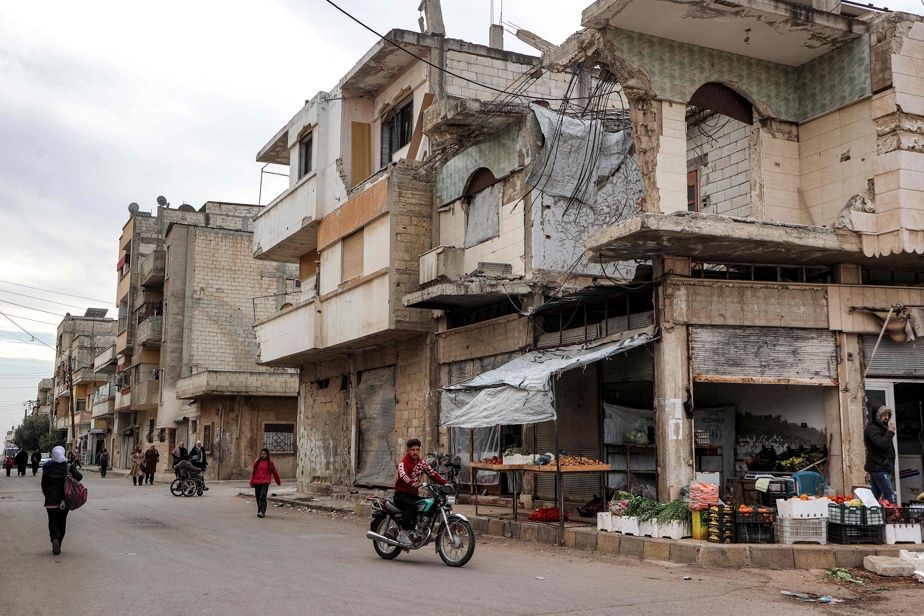
PHOTO AAREF WATAD, AGENCE FRANCE-PRESSE ARCHIVES
Syrians move along a street in Damascus, December 16, 2024.
“We have been working non-stop for a week to paint everything white, but we do not have enough workers to do all the stores,” said Omar Bachour, 61, a construction craftsman.
While some materials saw their prices increase, most prices of basic necessities fell with the temporary lifting of taxes.
“Everything happened at once: the fall of the regime, the fall in prices, the improvement of life. We hope it’s not temporary,” says Abou Imad, who transformed his car into a small grocery store where he sells vegetables in a square in the capital.
The UN estimates that seven out of ten Syrians now need international aid and predicts the return of one million refugees by June 2025.
The UN believes it can provide “ambitious” aid to Syria, the head of the United Nations Office for the Coordination of Humanitarian Affairs (Ocha) said on Tuesday after a meeting with Abu Mohammad al-Jolani.
“Moment of cautious hope in Syria,” Tom Fletcher said on X, calling his talks in Damascus “encouraging.”
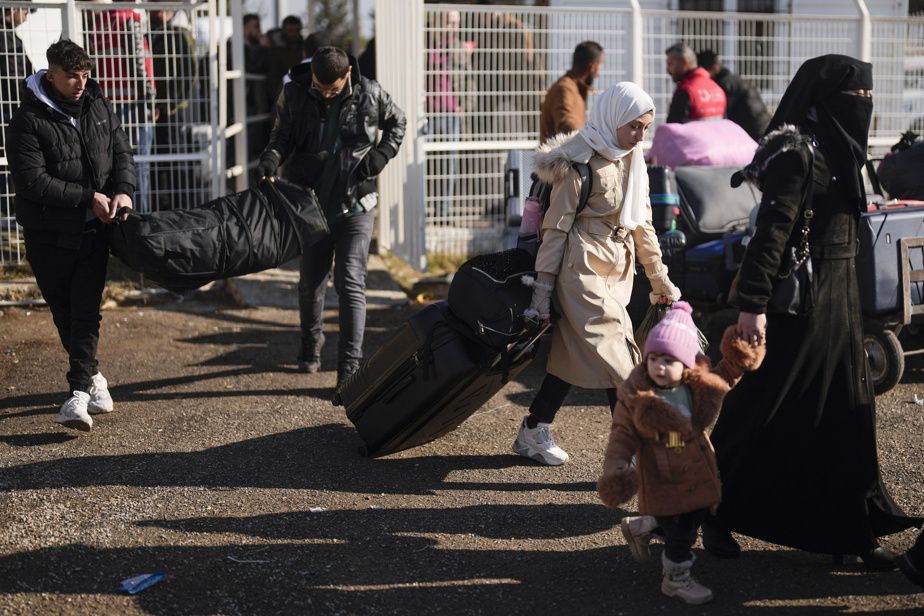
PHOTO KHALIL HAMRA, ASSOCIATED PRESS
Syrians carry their belongings as they walk to cross into Syria from Turkey, December 17, 2024.
“Build back better than before”
While Bashar al-Assad posed as protector of minorities in a Sunni majority country, several countries and organizations, while welcoming his fall, say they are waiting to see how the new authorities will treat minorities.
“Syria must remain united, and there must be a social contract between the State and all faiths to guarantee social justice,” assured Ahmad al-Chareh while meeting members of the Druze community on Monday , a branch of Shiite Islam, estimated at around 3% of the pre-war population.
Before a delegation of British diplomats, the head of HTS “underlined the need to lift all sanctions imposed on Syria in order to allow the return of refugees”.
Some have started to return to their ruined towns, such as in Maaret al-Noomane, in the west, where the fighting which broke out in 2012 left only collapsed walls and shattered streets.
“We are here to protect people and their property,” says police officer Djihad Shahin, 50. “We will rebuild better than before,” he promises.
But Kifah Jaafer, local head of the “Directorate of Liberated Areas”, is asking for time. “There is no school, no basic services. […] It will take effort and a lot of help, the city lacks everything.”
Along the road leading from Damascus to the port city of Latakia, the stronghold of the Assad clan, an AFP journalist saw dozens of abandoned military vehicles and rocket launchers, some still loaded. In Latakia, the three-star flags of Syrian independence adopted by the new authorities are raised, with the slogan “Syria for all”.

